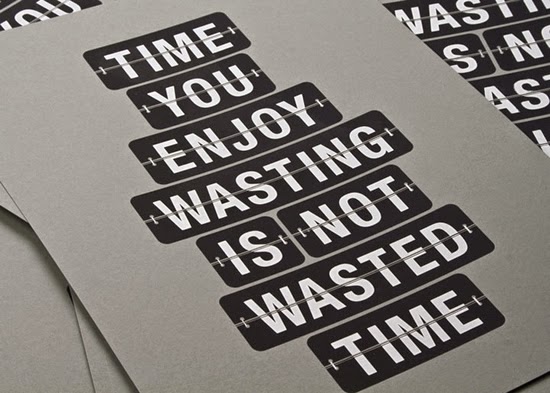"Abandon all attachment to the results of action and attain supreme peace."
- Bhagavad Gita
I've had some unpleasant jobs in the past. I've had filthy, mind-numbing, labor intensive gigs that sucked the life right out of me. I've had dangerous jobs where a misstep or moment of inattention could result in missing fingers or a 100-foot fall.
After a few years of this kind of work I was struck by a strange question: what makes a certain job or task unpleasant/mundane/mind-numbing?
Why is it that jack-hammering a floor-slab in a four-foot crawl space sucks while installing baseboards and crown moulding is fun? Both are tasks. One is more physically taxing, to be sure, while the other requires more precision and concentration, but objectively speaking neither is "good" or "bad."
The only real difference between the two is personal preference. How you view a task determines whether it is "pleasant" or "fucking horrible." It's an arbitrary distinction. Want proof? If certain tasks were objectively pleasant or unpleasant, people would be unanimous in their agreement. In reality, you will meet people who like this kind of work and others who despise it, people who enjoy this task and others who dread it.
As it turns out, my discovery was no discovery at all. Philosophers from east and west have been saying pretty much the same thing for centuries. Every value judgment you make is a fabrication, a label generated by your mind and attached to an external object and activity. The labelling process is unconscious until you take charge of it.
Instead of griping about my dirty, gruelling job, I started looking at it from a different angle. "This isn't labour," I began telling myself, "it's a work-out. I'm getting paid--handsomely, I might add--to exercise."
 |
| Another way to look at it... |
Suddenly, demolition work didn't seem so bad.
In any case, most to us don't have a choice: we have to work whether we want to or not. Might as well find a way to enjoy it, or at least make the best of it. Need to change the way you perceive work? My good buddy Kahlil Gibran might be able to help you with that.
Always you have been told that work is a curse and labor a misfortune.
But I said to you that when you work you fulfill a part of the earth’s furthest dream, assigned to you when that dream was born
And in keeping yourself with labor you are in truth loving life,
And to love life through labor is to be intimate with life’s inmost secret.
Life is labor. If you love life, you best start loving labor. How does that Bible scripture go again? If you don't work, you don't eat. And if you don't eat, you don't live. Life and labour are inseparable. Accept it, adapt, and move forward.
 |
| Hercules didn't whine about his 12 Labours |
You have been told also that life is darkness, and in your weariness you echo what was said by the weary.
And I say that life is indeed darkness save when there is urge,
And all urge is blind save when there is knowledge,
And all knowledge is vain save when there is work,
And all work is empty save when there is love;
And what is it to work with love?
It is to charge all things you fashion with a breath of your own spirit.
This doesn't mean that you must love your job, only that you should work with love, by focusing your all into the task at hand. Restrict yourself to the present moment, put your entire mind into whatever it is you're doing, and you will find that the painfully slow days now fly by.
And if you cannot work with love but only with distaste, it is better that you should leave your work.
In other words, if you spend your days whining about your job, you better spend your evenings looking for a new one. We have to work to live, sure, but you get to choose where you work.
If you aren't searching for a way out, then your current job must not be so bad. So do yourself a favour and fixate on the positive aspects, the ones that stop you from quitting.
Don't echo what was said by the weary. You're better than that. Make the best of your current situation while constantly looking for ways to improve it.
And whenever possible, work with love.
/rant over





























